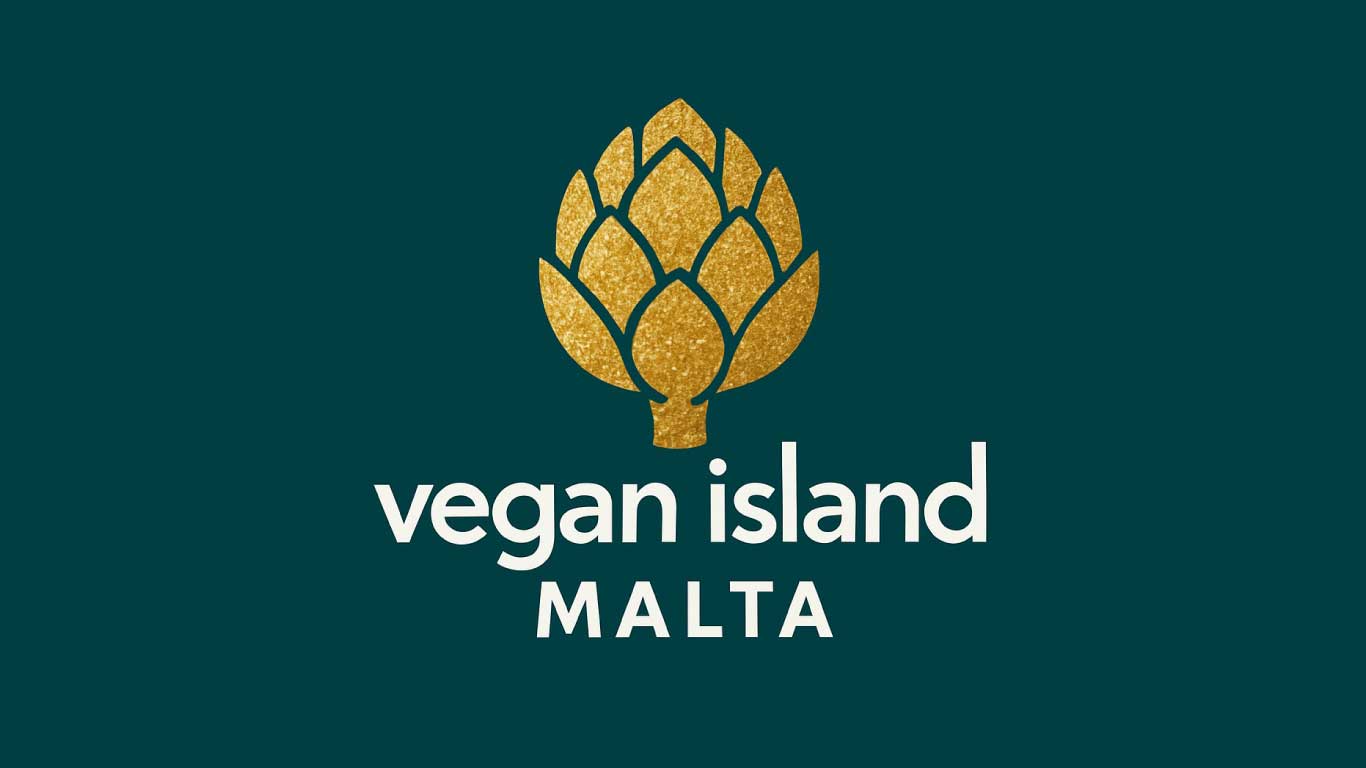When we launched Vegan Island Malta, we knew it would stir conversation — and that was precisely the point.
The campaign was a parody of the popular (and often controversial) reality series Love Island Malta. That show, like many others in its genre, promotes a glossy, superficial ideal of beauty — where abs, bikinis, and fleeting flirtations take centre stage. Our goal wasn’t to mimic it, but to subvert it.
So we asked: What if we used the same tools of image and attraction, but flipped the script completely?
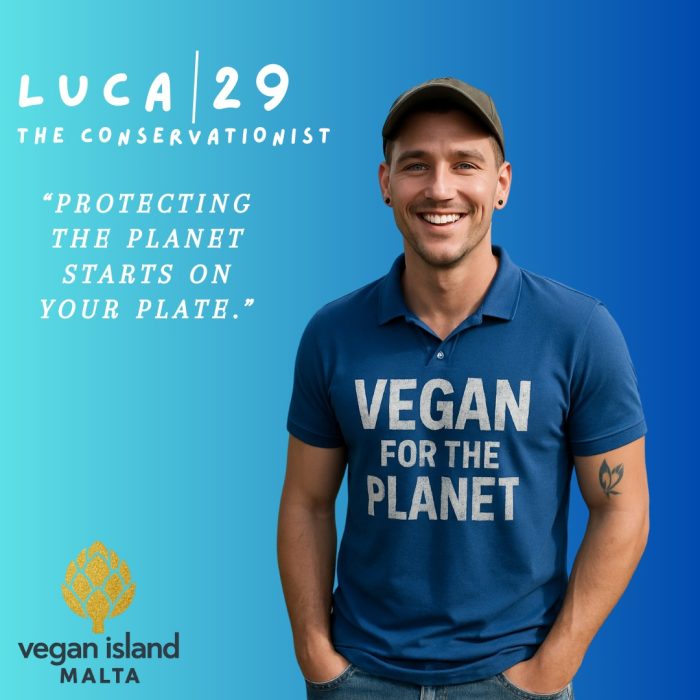
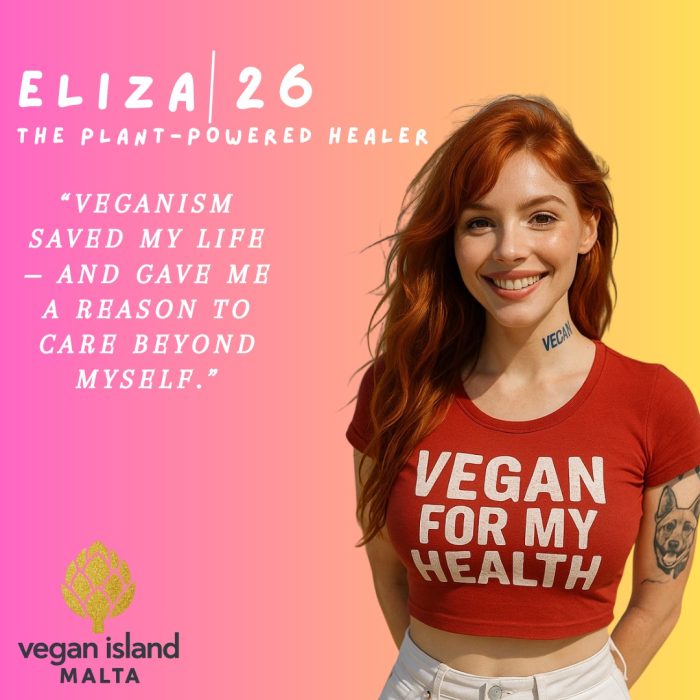
And that’s how Vegan Island Malta was born — a tongue-in-cheek yet heartfelt campaign where every “contestant” wore not just swimwear, but a message. AI-generated islanders appeared in sunny settings wearing t-shirts that read:
- “Vegan for the animals”
- “Vegan for the planet”
- “I don’t want another pandemic”
- “Vegan for my health”
- “Vegan for climate change”
Each came with a “bio” — but rather than superficial facts or dating clichés, these bios delivered meaningful vegan messages. They told stories of compassion, awareness, personal transformation, and values. The whole campaign was framed by our launch message:
“Welcome to Vegan Island – where true beauty isn’t measured by abs or the ‘best’ body… but by the values you live by. Here, kindness is magnetic. Integrity is attractive. And compassion? It’s the real glow-up.”
In other words, we used image to talk about values. We borrowed a mainstream format to challenge the mainstream message. And we chose AI-generated imagery not to exclude real people, but to create a parody aesthetic — polished, exaggerated, slightly surreal — that mirrored the artificiality of Love Island’s own hyper-reality.
Unfortunately, not everyone understood the satire. One comment read:
“Using AI models is not helping the cause at all. Get in touch and promote actual vegans living in Malta. Help raise awareness against this misinformation that vegans look bad because of malnutrition.”
We appreciate this concern. Truly. But the criticism misses the point.
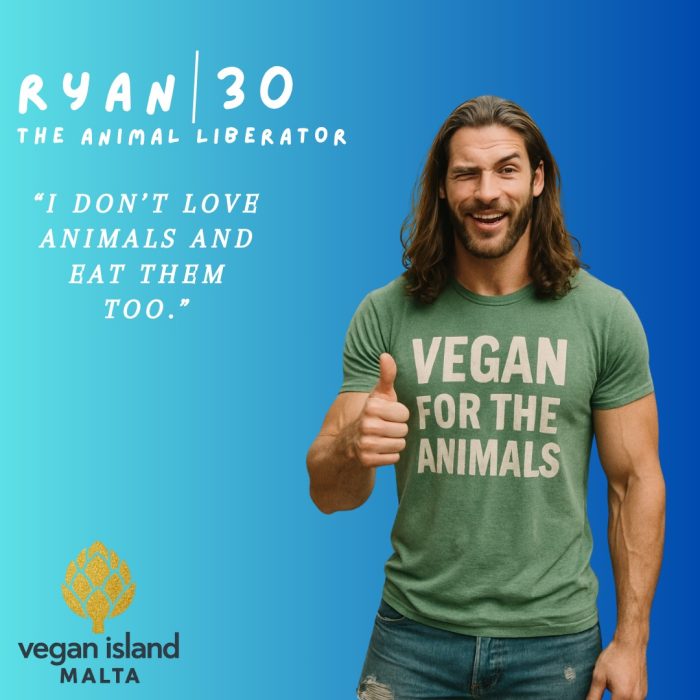
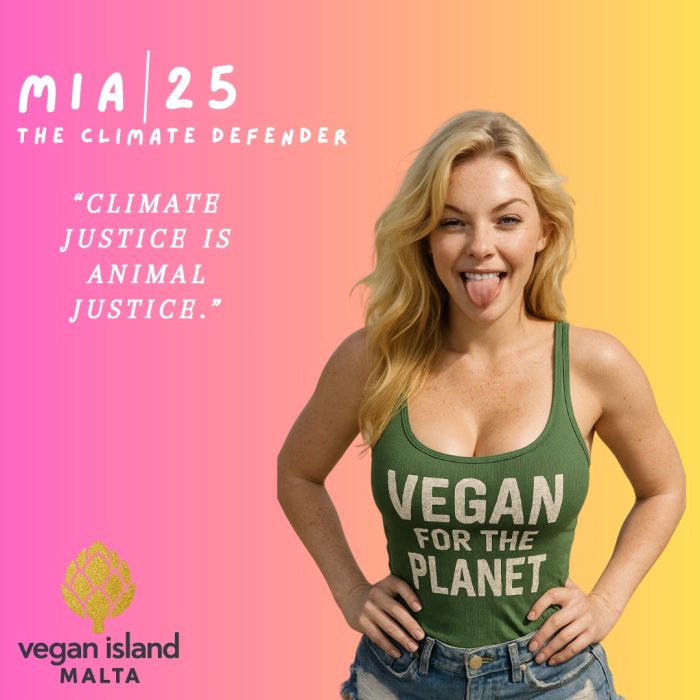
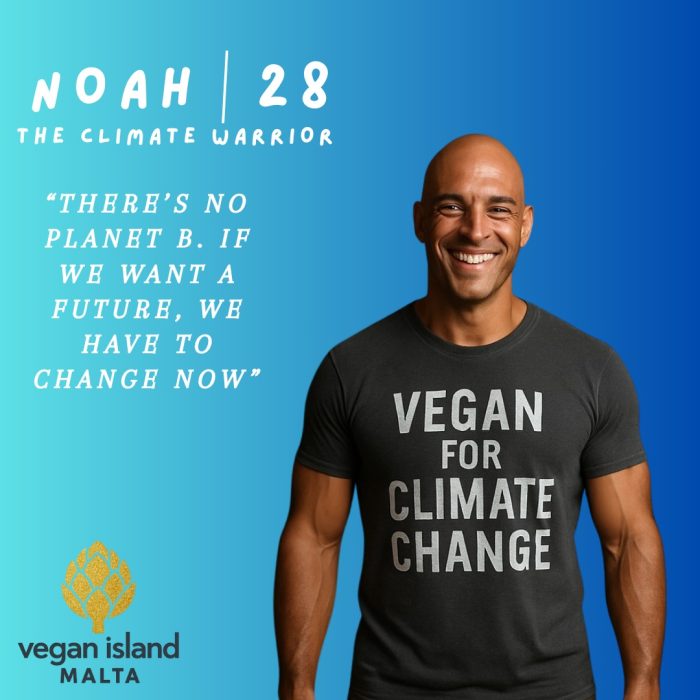
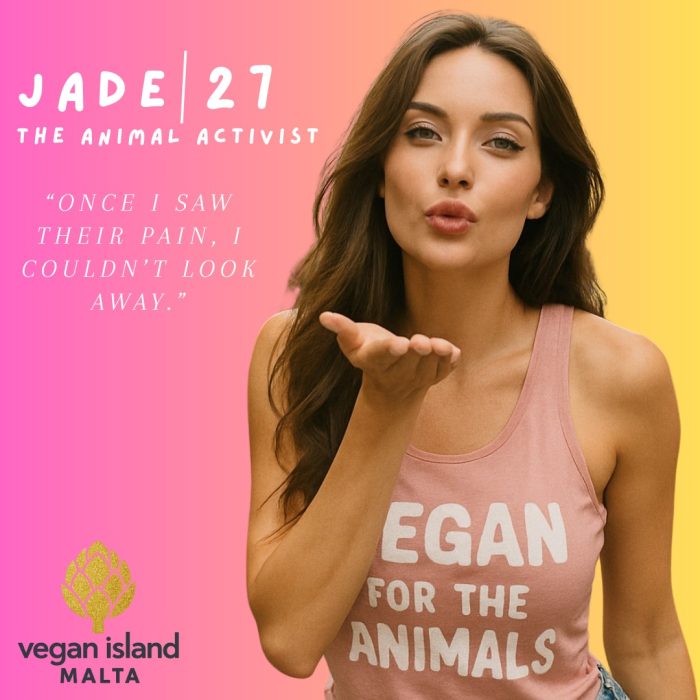
We weren’t claiming these were real people. We were using hyper-real imagery to critique a hyper-superficial show. And in contrast to the AI-perfect visuals, we placed real values: justice, compassion, sustainability, and empathy. The goal was never to say, “This is what vegans look like.” It was to say, “What you live for is more beautiful than how you look.”
The use of AI allowed us to do this with consistency, speed, and playfulness. It let us make a visual statement while sparking curiosity — and yes, some confusion too.
So, to those who got it, thank you. To those who didn’t, we welcome the dialogue. Because whether you agreed with our methods or not, Vegan Island Malta got people talking about veganism — and that, ultimately, is what matters.
And maybe next time, we’ll invite some real local vegans onto the “island” too. But rest assured — they’ll still be wearing their values.


